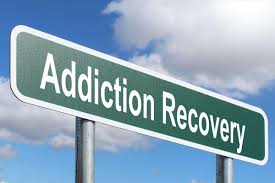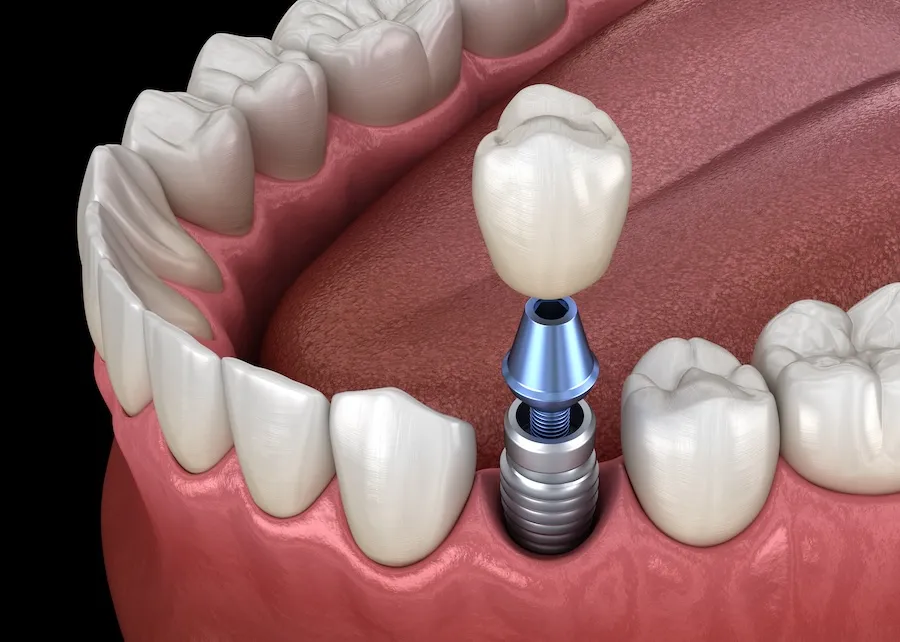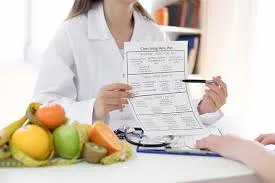A Comprehensive Guide to Rehabilitation Centers and Addiction Recovery
Alcoholism is a fight between the addict and their family members as well. When things are tough, any addict has to start to brave somewhere to get rehabilitation services. The centers under consideration also respond to the need for maintenance of the personality as rehabilitation centers can be defined as sanctuaries of healing.
In this guide, both the family members, who need information on how they can support their loved one, and practitioners, who need information on how the centres can best address addiction, shall benefit from an understanding of the part played by these centres and how they lay the framework for sustainable recovery.
Understanding Addiction and How Rehabilitation Centers Help
These are disorders involving the brain and behaviour, and encompass cravings as well as the inability to abstain even when the client has the desire not to. Some of the most famous are substance addiction, including alcohol, drugs, and those including behavioural addictions such as gambling and games and the other specific types of addictions include pornography and food dependency.
The Role of Rehabilitation Centers in Addiction Recovery
The long term care hospitals are paramount in caring for users as they go through the rehabilitation process. The substance use centers offer extensive programs as well as the exact services required to treat the intricacies associated with addiction. Rehabilitation centres aim at comprehensive recovery of the patient under medical care and supervision with the treatment specialising on the physical, psychological and emotional well-being of a person and strives at providing the patient with a structured program under which the patient is expected to reform.
Types of Rehabilitation Programs
The acrossability of rehab centers is vital to understand that there are different types of programs that are offered based on a person’s requirements and circumstances. These programs may include:
- Inpatient Programs: Inpatient or residential programmes are offered in facilities where a client is a resident 24/7 which means that they are isolated from other daily lived activities and can fully concentrate on recovery.
- Outpatient Programs: Outpatient programs provide great freedom of receiving proper treatment with living at home and going to therapy sessions during their appointments.
- Intensive Outpatient Programs (IOP): IOPs allow for a step up from conventional outpatient treatment; they offer treatment several times a week while still catering for the patient’s day to day activities.
Therapies and Approaches Used in Rehabilitation
Rehabilitation centres work under lots of research backed tactics and treatments to help a patient overcome his or her problem of substance abuse. These may include:
- Individual Therapy: Individual counseling to identify the root of drinking problems, how to manage situations triggering desire to drink and map out of plan for change.
- Group Therapy: These work as mutual support sessions where an individual gets to meet other persons with similar problems as him and thus gets the support from other persons facing similar circumstances as him in a considerate gathering.
- Family Therapy: Family therapy involves invitation of close relatives to assist in solving family issues, enhance relations or help fix relations that have been ruined as a result of substance dependency.
- Holistic Therapies: Most of the rehabilitation facilities have complementary modalities for enhancing bodily health and improving the clients’ rehabilitation processes, some of which are Yoga, art therapy, and Mindfulness.
Aftercare and Long-Term Support
The rehabilitation facilities know that it is a lifelong process of the person to be rehabilitated. They give their patients the aftercare programs and long-term support in equal measure for the patient to be well equipped socially to meet the impacts requirements for a sober life. The management programs provided after that may include the ongoing therapy, attending support groups, learning of ways to prevent relapse, and getting linked to other resources in the society which will assist the individuals to live a sober life.
With diverse kinds of programs, treatments and follow-up support, rehabilitation centers help their clients get over the disease, regain a chance to live and make a choice of a better, more successful life.
Recognizing the Signs of Addiction
Learning the common indicators of addiction is the first way of assisting a person who might be struggling with substance use disorders. Look out for:
- Social changes: Withdrawal, avoidance of vitally needed activities, shirking of duties, self removal from social circle.
- Mental health symptoms: Nervousness, depression, or temper.
- Physical changes: Changing weights, widened pupils, or uncleanliness.
This makes rehabilitation centers well equipped to offer the rigidity in handling these substance use disorders. It guides people on what they need to do to detox their body, change their attitude and habits for the better by means of scientifically backed programs.
The Role of Family and Friends in Supporting Recovery
There is no journey to the way of recovery that is done with one’s company only. Stakeholders are very helpful in the rehabilitation process because they act as sources of support for their loved ones.
How to Be Supportive
- Educate Yourself: This way you will understand what your loved one is experiencing when it comes to addiction and recovery.
- Participate in Counseling: The vast majority of rehabilitation centers provide family therapy sessions in order to resolve conflicts between the family members.
- Encourage Without Enabling: Keep them without ignoring the vices that come with it.
This is not your task as a loved one; your task is to support – and to rebuild – beside them with the assistance of professionals.
A Day in the Life of a Rehabilitation Center
Rehab facilities develop an organized ambiance that helps one exercise self-control hence recovery processes. While programs and schedules vary, here’s an example of what a typical day in rehab might look like:
- Morning Mindfulness
People begin their day with some form of practice such as meditation or yoga in order to create focus and ease.
- Therapeutic Sessions
Psychosocial, group and individual counseling is at the center of the program thus allowing people with similar issues to discuss them and have supportive mechanisms that help in dealing with the situation.
- Training and Development and Seminar and Workshop
Exercises such as stress reduction, refining personality, handling relapse, and other quality life exercises to retain a schedule in or out of the center.
- Physical Exercise
Physical exercise allows one to maintain good health physically by breaking the sedentary chair maneuvers while stimulating the production of endorphins which promotes better mental health.
- Evening Reflection
It is also not abnormal for the operations of most centers to end with activities such as writing, appreciation activities, and or group discussions.
This kind of organization not only allows a return to a normal living pattern but also provides such habits and skills that are needed in order to ensure constant recovery.
Success Stories of Addiction Recovery
Every rehabilitation center has lots of success stories – people who have fought drug dependency and emerged victorious through rehabilitation centers.
Meet Kate (Alcohol Recovery)
Kate had been an alcoholic for more than 10 years. She had to undergo detox, cognitive behavior therapy and attend community meetings when she was at a rehabilitation center. Today enabled Kate to maintain her sober life getting psychological help and constant support from her counselors and close ones.
Meet Juan (Opioid Recovery)
Juan opioid dependence started due to a sports accident. Through a unique Pain Recovery program, he went to rehab for 3 months for a non-pharmacological approach to chronic pain and after discharge, he is healthy, with no pain and helping other people to learn how to get better. These case studies are vivid examples of the importance of functioning special programs and the necessary support system.
How to Choose the Right Rehabilitation Center
Selecting a rehab facility involves a very careful decision making process. Here are some factors to consider to ensure it’s the right fit for your loved one’s unique needs:
Key Factors to Evaluate
- Accreditation and Reviews
When deciding where to go for rehabilitation, select a center that has the right accreditation and most importantly has been approved and recommended by former clients.
- Personalized Programs
Recovery does not have to be monolithic. The best centers should develop individualized treatment plans that take into consideration any symptoms of any mental disorder.
- Staff-to-Patient Ratio
Small ratios are more appropriate because it makes it easier for staff to attend to all personal needs of residents adequately.
- Long-term Support
A good program should have follow up programs like individual or group therapy, or ‘alumni ‘ programs where people who have been in the given facility can offer help and support.
Patience in the selection of the particular center often makes a lot of difference in the process of treatment of a patient.
The Future of Addiction Recovery
Substance use disorder treatment has been a subject of change over time with viewing modern technologies as integral in the treatment models.
New Directions in Rehabilitation
- Virtual Therapy
On the way toward telehealth provision, patients are gaining additional opportunities to access programs for addiction recovery especially in rural sites.
- Artificial Intelligence
Technological solutions are now being worked on as tools to monitor progress, determine possible future episodes and design customized interventions.
- Wearable Technology
Wearable technology that monitors one’s physical and emotional well-being helps people resisting cravings and stress prompts.
- Holistic Approaches
Adaptive approaches such as horse riding therapy, protected artistic expression, and wilderness programs are becoming more recognized and assist people to recover the damaged mental and physical self.
They could open the possibility of offering more affordable, efficient and environmentally friendly recovery solutions .
Empowering Support for a Brighter Future
Recovery is highly individualistic and is not a process that one wants to go through without the right kind of encouragement and encouragement. Regardless of whether you are a family member, clinician, or part of the addictive recovery community, your part is critical. Altogether with the assistance of rehabilitation centers the process of recovery is not only conceivable, but also possible.
If this is the situation of an individual or someone close to you, do not hesitate to consult any known rehabilitation agency. Qualification and heartfelt attitude are qualities that can change people’s lives, starting from a single stride.
Conclusion
It is therefore important to understand that rehabilitation centres are key in helping empower people as they go through a process in order to recover from the vice of substance abuse. Housed in a protective milieu these centers bring out the tools, resources and professionals required to steer a former addict towards achieving permanent sobriety. The modern approaches, techniques, and focus on individual treatment have given some new opportunities for cost-effective and efficient successful recovery. They may be friends, family members, caregivers, or from the recovery industry. Your part in helping people through their process for recovery is so important. In partnership with rehabilitation centers, we can carry on helping the reclusive and rebuilding their future amongst the unknown territories of addiction. For more information about services provided and to schedule a visit with a rehabilitation center, call now. By virtue of their education and strengths, they can make a lifesaving change one foot forward.
FAQs
Q: How long does addiction recovery take?
A: The time that one will take to afford recovery from the effects of substance addiction depends on several factors which include social, physical, and the addiction recovery model used. Indeed, recovery is a long process, and therefore immediate intra- and extra-hospital rehabilitation, which lasts a few weeks to several months, must be followed by support and maintenance phases in the course of a lifetime.
Q: What types of therapies are used in addiction recovery?
A: There are several types of rehab, and many include some of the most proven therapies such as: CBT – cognitive behavioral therapy; DBT- dialectical behavior therapy; motivational interviewing and family therapy. These therapies are meant to to treat the root causes of substance abuse, improve better strategies and being an advocate for change.
Q: How do I choose the right rehabilitation center?
A: Certainly, selecting the right rehab center would be a vital determinant in the kind of treatment and self-care the patients need. They include the possibility of accreditation, therapeutic orientation, credentials of staff, general success, post-treatment programs, and physical features. These also involve reading some feedback, asking for referrals from other healthcare offices, and, if possible, following up on site visits.











Post Comment